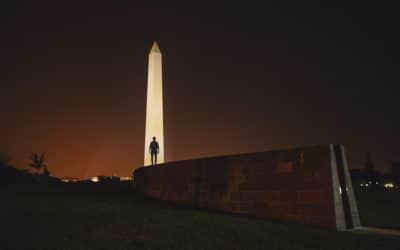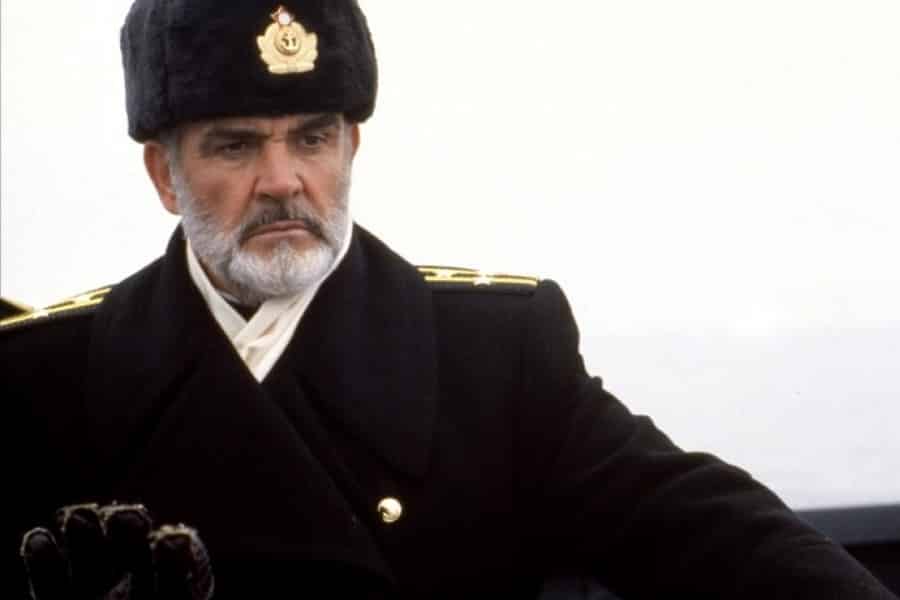
Feature
Cold War Thrillers
Jefferson Flanders
The British invented the modern spy thriller in the early 20th century. And when the Cold War commenced between the Soviet Union and the West, English authors—Graham Greene, Ian Fleming, and John le Carré—quickly earned a reputation for bringing a literary flair to their accounts of the clandestine skirmishes between intelligence agencies.
In the late 1950s and early 1960s, Greene’s The Quiet American, Fleming’s From Russia with Love, and le Carré’s The Spy Who Came in From the Cold climbed the bestseller lists.
Le Carré (the pen-name of David Cornwell, a former intelligence officer) offered a dark vision in his novels of blurred moral and ethical lines in the covert struggle against Moscow Central. An undercurrent of anti-Americanism marred le Carré’s work, perhaps reflecting resentment that Britain’s MI6, riddled with Soviet moles like Kim Philby, had been relegated to the sidelines by the CIA.
At the same time, several gifted American writers spun their own cloak-and-dagger tales with just as much (if not more) literary merit as their British counterparts.
Here are seven classic spy thrillers—made in America—that should be on the reading list of anyone who enjoys the genre and has an interest in Cold War espionage:
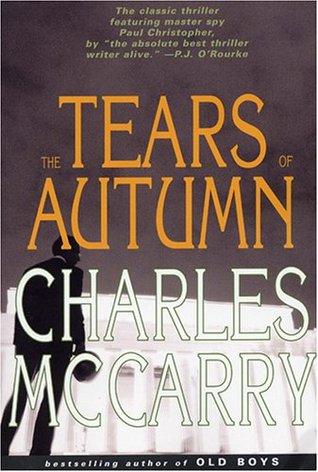
The Tears of Autumn by Charles McCarry
The 1963 assassination of President John F. Kennedy shocked the world and sparked numerous conspiracy theories. Fingers were pointed at the Soviets, the Cubans, the Mafia, Lyndon Johnson, the Pentagon, and the CIA. In McCarry’s riveting novel, published in 1974, his protagonist Paul Christopher, a CIA officer, seeks to discover the truth behind Kennedy’s slaying. His quest takes him to Europe, North Africa, and Vietnam, where he discovers links between Kennedy’s murder and the American-backed coup d’état that killed South Vietnam’s leaders, the Ngo brothers, three weeks before Dallas. While you may not buy McCarry’s elaborate conspiracy theory (I don’t), The Tears of Autumn makes an intriguing case that JFK’s assassination was payback from a South Asian dynastic family. Often called “the American le Carré,” McCarry once wrote speeches for President Dwight D Eisenhower and spent ten years undercover in the CIA.
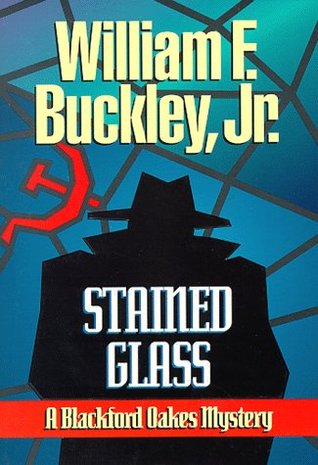
Stained Glass by William F. Buckley Jr
The Central Intelligence Agency turned to the Ivy League for many of its first recruits in the 1950s. William F. Buckley Jr., the famous conservative gadfly and public intellectual, was one of them. After his brief stint in the CIA, he turned to journalism. When Buckley began writing spy thrillers, he created a hero, Blackford Oakes, a sophisticated and dashing CIA officer, meant to be a (more realistic) American answer to Great Britain’s James Bond. His 1978 novel, Stained Glass found Oakes dealing with the threat of a Soviet invasion of West Germany after a charismatic political figure (Count Axel Wintergrin) calls for an immediate reunification with East Germany. The novel won a National Book Award, and the New Republic claimed that Buckley’s tale “cuts closer to the bone than le Carré has ever cut.”
advertisement
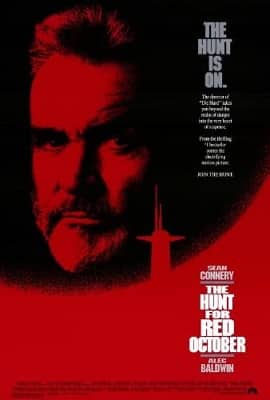
The Hunt for Red October by Tom Clancy
When an unknown Maryland insurance agent published his first novel in 1984 with the Naval Institute Press, the odds for success were long. But President Ronald Reagan’s endorsement of the techno-thriller put the book on the bestseller lists. Clancy’s deeply-researched story revolves around a Soviet submarine commander, Marko Ramius, who decides to defect to the West and to bring his ballistic missile submarine Red October along with him. It introduced Jack Ryan, a cerebral CIA analyst pressed into field service, who then appeared in numerous Clancy novels and is now featured in a Netflix series. The movie version of The Hunt for Red October starred Alec Baldwin, Sean Connery, Samuel L. Jackson, and James Earl Jones and proved to be a box-office smash.
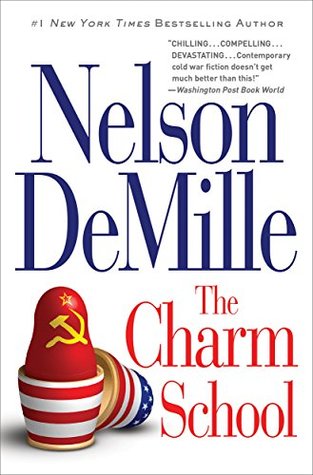
The Charm School by Nelson DeMille
During the Vietnam conflict, there were constant rumors that American soldiers and pilots captured by the North Vietnamese might have ended up in the Soviet Union. In DeMille’s 1988 novel, an Air Force colonel, Sam Hollis, stationed at the Moscow Embassy learns of a remote camp (“Mrs. Ivanov’s Charm School”) where Russians are being “Americanized” so they can become a subversive Fifth Column in the U.S. Their teachers: American POWs. Hollis discovers that he must battle both the KGB and elements in his own government—who want to preserve detente—in trying to reveal the truth. In a strange twist, DeMille’s plotline proved to mirror real life; in 2010, the FBI arrested eleven Russian sleeper agents hiding in suburban America (which, in turn, inspired the hit cable series “The Americans.”)
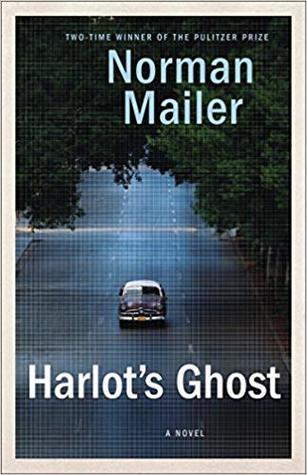
Harlot’s Ghost by Norman Mailer
Considered a leading literary figure at the time (1991), Mailer decided to tackle the story of the early CIA in this mammoth novel (more than 1,300 pages). His protagonist and narrator, Harry Hubbard, is a member of the East Coast establishment who has followed his father into the CIA. Harry is sent to divided Berlin, where he works with the legendary Bill Harvey. He then becomes involved in the covert efforts to overthrow Cuban dictator Fidel Castro (which produced the botched Bay of Pigs invasion, a colossal CIA failure.) The narrative of Harlot’s Ghost end in the early 1960s, after the Kennedy assassination, finishing with the words, “To Be Continued”: Mailer intended a sequel, Harlot’s Grave, which he never completed. While some of his literary tricks can be annoying (telling much of the story through letters; relying too much on flashbacks; interspersing gratuitous sexual escapades), Mailer’s quirky left-of-center take on U.S. foreign policy and on American society since the Second World War remains engaging.
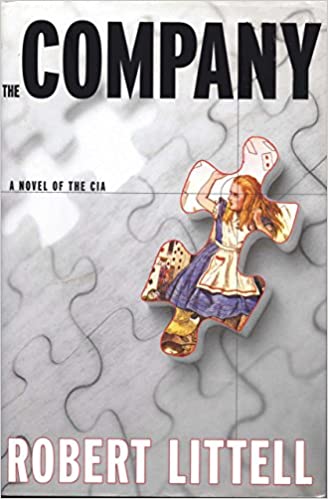
The Company by Richard Littell
This epic novel, published in 2002, is a more disciplined narrative account of the CIA’s history than Mailer’s book, although it’s almost as lengthy, weighing in at almost 900 pages. The book follows a group of Yale students recruited into “The Company” at the start of the Cold War. Littell, a former Newsweek editor, deftly weaves together fact and fiction, portraying the highs and lows for the Agency. The novel spans five decades, from the division of Berlin to the fall of the Soviet Union, offering a fascinating history of the period. The TNT miniseries based on the book featured Chris O’Donnell, Michael Keaton, Tom Hollander, and Natascha McElhone.
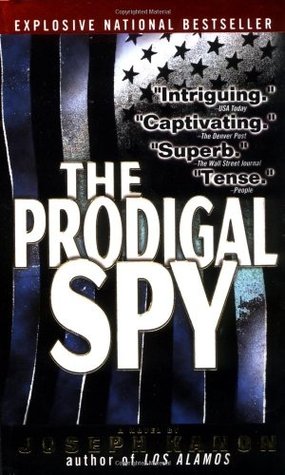
The Prodigal Spy by Joseph Kanon
Soviet agents operated in the United States for decades, recruiting Americans to spy for them. Some betrayed their country out of Marxist conviction, others for pay. In The Prodigal Spy, Joseph Kanon’s 1998 novel, a State Department official named Walter Kotlar flees to Prague in 1950 after being accused of treason during the initial Communist witch-hunts. Twenty years later, Kotlar reaches out to his estranged son, Nick, hoping to trade secrets about his past for a return to the U.S. When Nick travels behind the Iron Curtain to reunite with his father, he begins a journey that imparts lessons about loyalty, betrayal, and the abuse of power that resonate in today’s Washington.
The Cold War ended in December 1991. Now, a new generation of American writers is offering fresh perspectives on the conflict. Viet Thanh Nguyen won the 2016 Pulitzer Prize for Fiction for The Sympathizer, the story of a North Vietnamese mole who comes to the United States to spy on South Vietnamese exiles. Lauren Wilkinson’s 2019 American Spy features a Black FBI agent, Marie Mitchell, sent to West Africa in the 1980s to undermine a Che Guevara-like revolutionary leader. In Atomic Love, Jennie Fields’ 2020 novel, a Manhattan Project scientist, Rosalind Porter, becomes entangled in the FBI search for those passing nuclear secrets to the Soviets.
While it’s been thirty years since the dissolution of the Soviet Union, scholars are still evaluating the events and actors of the Cold War history. Novelists and screenwriters have no shortage of creative material. There are still fascinating tales to be told about the twilight struggle that marked this remarkable and critical period of history.
Copyright © 2021 Jefferson Flanders
All rights reserved
About the Author
Jefferson Flanders has written six novels about the Cold War. Kirkus Reviews praised his latest book, Charles Bridge, as “an absorbing, intelligent thriller that considers the human costs of clandestine operations.” During the course of his career, Flanders has been a sportswriter, newspaper columnist, editor, and publishing executive.

More Political Thriller Features
Political Thrillers for Independence Day
4th of July Political Thrillers
The Art of a Political Thriller
To recipe or not to recipe?
Stranger Than Fiction
True stories of political mysteries and thrillers
Advertisement



